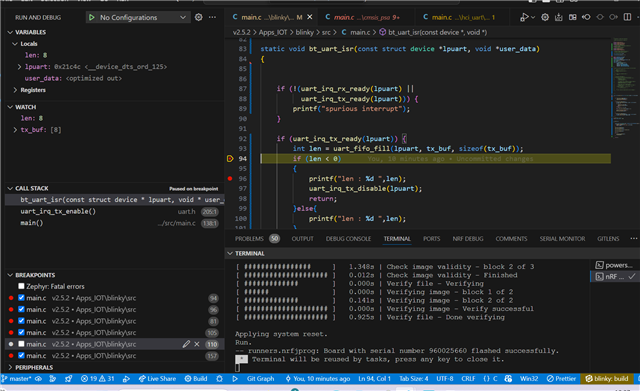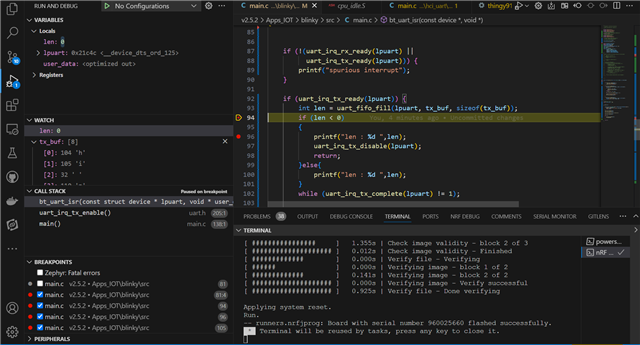Hello,
I am using uart with thingy:91 to communicate between nrf52 SoC and nrf91 SiP, i am able to receive data from nrf52 but when i try to send data to nrf52 SoC the function uart_irq_tx_ready always returns 0 "UART TX is not ready", btw I am using uart0 for both nrf52 and nrf91 and for nrf91 I am using interrupt driven mode and for nrf52 I am using async api mode.
Here is my init code for nrf91 SiP and how i try to send data:




